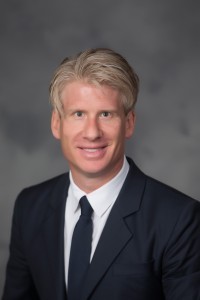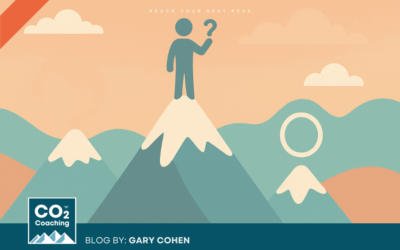
Executive coaching can have a large impact on a CEO. Learn first hand from an interview conducted recently with Bill Bisanz, CEO of Real Estate Equities.
Bill Bisanz is the CEO of Real Estate Equities, an apartment development, management, and ownership group based in St. Paul, MN. Founded in 1972 by his father (Robert Bisanz) and Terry Troy, Real Estate Equities now has 170 employees and properties in Minnesota, Wisconsin, and Indiana, in addition to a vacation management business (Elite Destination Homes), which offers rentals in Paris, Turks and Caicos, Mexico, as well as numerous other domestic and foreign locations. Five years ago, after developing Elite Destination Homes, Bill started wading back into the core business.
What led you to seek executive coaching, and why did you choose your particular coach?
As I took on a leadership role at Real Estate Equities, I met Gary through a third-generation, real-estate entrepreneur. I was convinced I wanted an executive coach to support me, clarify my thinking, and create strategies for the organization—to negotiate the complexity of a closely-held business with both family members and non-family, and to revive a somewhat stagnant business.
I interviewed Gary and three other options. One of the reasons I picked Gary is because of his strong intelligence and strategic capability, and his high emotional intelligence—really relevant to my situation, given the personalities and closely-held nature of the business. And the chemistry was good. I think his value system is similar to mine. He also has the right combination of hard and soft skills for me.
Early on, what fears, if any, did you have about working with an executive coach, and why?
I may have had some fears around how my partner would interact with my initiative to change how we did things. Terry, my partner, kind of rejected Gary. Gary challenged him at one point, and Terry decided he was not going to be open to Gary. My fear came true, that my business partner would challenge my coach and coaching. But it was still a good thing, ultimately, and very valuable.
What sort of return did you expect to get from executive coaching?
It’s kind of like, “What sort of return do you expect when you get a physical from the doctor?” You think you’ll live longer and healthier maybe, but you don’t have a specific goal in mind otherwise.
How has your experience working with a CO2 executive coach met, exceeded, or departed from your expectations?
Executive coaching has both exceeded and departed from my expectations because I didn’t have anything to compare it to. It’s been five years and a very satisfying relationship. In the beginning, Gary helped with internal politics. That proved to be a longer and more stubborn process than I thought it would be. But it helped us set the table on the staff front and create a platform that would allow us to grow. Our company has been around for 45 years, so the fact that it took me three years to turn the ship around isn’t all that surprising. Because of my partnership situation, I needed to approach it as I did. I had to work organically. Gary’s emotional intelligence helped me navigate that challenge. It took a while, but we’re starting to pick up some steam.
While you’ve been working with CO2, what coaching strategies, philosophy, activities, and discussions open you up to change?
Gary’s business model is a good one—monthly fee for service, two meetings a month, available as needed—providing a good combination of consistent and emergency support.
I also work with Gary in the strategic planning process on an annual basis. That has been catalytic. He’s often introducing new models from his readings and research, which I find helpful. The planning process helps galvanize plans for the entire year, and the monthly stuff is like the maintenance program. It’s change through osmosis.
What changes have you made as a result of coaching?
I’ve been willing to take on greater levels of personal responsibility inside the organization in terms of my role. I think I’m a much better leader now—some due to coaching, some due to more experience.
If you’ve made changes as a result of executive coaching, how have those changes made a difference in your work and/or personal life? Please share specific examples.
My business is expanding, and I’ve seen more prosperity as a result. Because of some of the structural changes we’ve implemented, I’m able to spend more time in my week focusing on bigger things, too.
My personal life has been pretty tumultuous, but I’ve been able to be physically and mentally sound throughout. I don’t know that the coaching has had a direct impact on my personal life, but I am able to attend to what I need to attend to, and that’s been a much taller order than I anticipated.
What is a strategy that you think might help, but haven’t tried?
Technology use. I think we’re behind in this area, and I’m looking at ways to enhance that.
Does your executive coach do something that frustrates you or that you find not helpful? If so, describe.
Sometimes Gary will choose to apply tension by belaboring an issue, and it’s not always clear to me if that’s helpful. Sometimes I’m grateful when he does that, and there are times that I’m not grateful but it’s helpful. And sometimes it’s neither. On the whole, it reflects well on Gary that he’s willing to introduce some tension even if his client might not like it.
Does the value or nature of executive coaching change over time? If so, how?
I’m working on different problems now than at the beginning. We’re building apartment buildings now ($25-50 million transactions), which are 5-10 times the size of transactions from before. It does pay dividends to stay the course.



